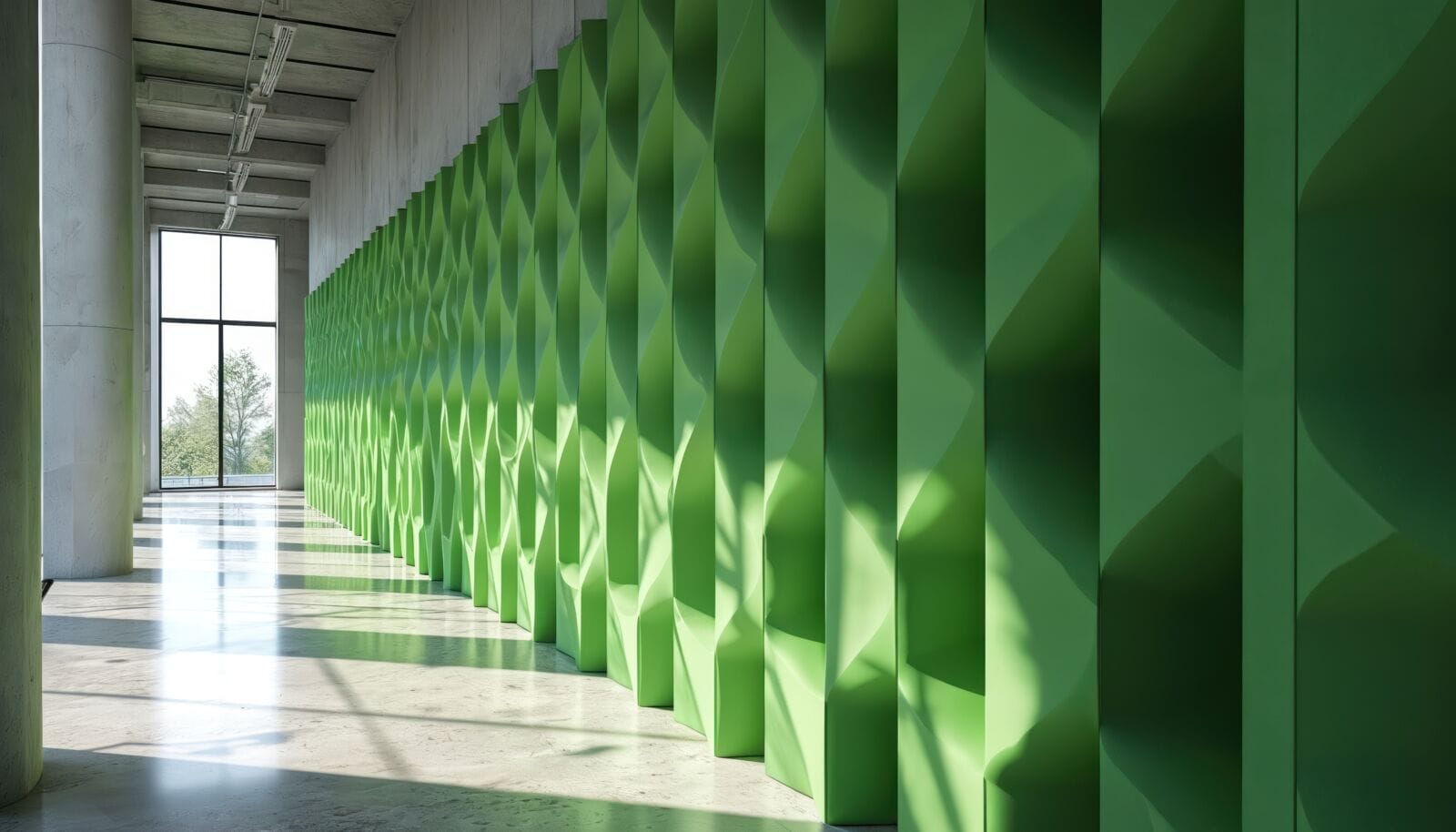In law, trust is everything. Clients share the most sensitive details of their lives—financial struggles, family disputes, corporate secrets. They expect absolute discretion. Yet in many Arizona offices, walls are too thin and doors too light to guarantee it.
Attorneys in Phoenix, Scottsdale, and across the state are realizing that confidentiality isn’t just a promise made in a contract. It’s something clients need to hear—or rather, not hear. A whispered strategy session shouldn’t echo into the hallway. Sensitive negotiations shouldn’t drift into the reception area.
That’s why more firms are searching for sound proof panels near me as they upgrade their offices. Not because it’s trendy, but because it’s a direct investment in trust. If a client feels exposed in your conference room, they may question everything else about your practice. Silence, in this case, speaks volumes.
LOCAL NEWS: 10 things you may not know are manufactured in Arizona
INDUSTRY INSIGHTS: Want more news like this? Get our free newsletter here
When Thin Walls Cost You Big Time
Noise isn’t just a nuisance—it’s a liability. One overheard conversation can erode years of trust. And for law firms, that risk carries real consequences.
What Happens When Client Conversations Leak
Imagine a divorce case where sensitive financial details leak into the waiting room. Or a corporate deal where numbers slip through thin drywall into the hallway. Even if no one acts on the information, the client’s perception of security is shattered. And perception, in law, is everything.
Clients don’t want to wonder if the receptionist can hear them discussing custody arrangements. They don’t want to whisper about trade secrets while footsteps echo outside. One moment of doubt is all it takes to make them reconsider their relationship with the firm.
Real Cases That Made Firms Rethink Office Design
Several Arizona firms have already faced embarrassing situations. A high-profile case in Scottsdale nearly derailed when rival attorneys overheard fragments of a deposition prep. In Tucson, a client demanded meetings off-site after realizing conversations in a partner’s office carried straight into the hallway.
These stories travel fast within the business community. And in competitive markets, a reputation for sloppy confidentiality can be more damaging than a courtroom loss. That’s why more firms are rethinking office design, starting with acoustic integrity.
Clients Expect More from Their Lawyers’ Offices Now
The bar has been raised. It’s no longer enough to have a nice lobby and leather chairs. Clients—especially high-net-worth ones—expect privacy to be built into the walls.
What Wealthy Clients Actually Notice
Affluent clients are used to exclusivity. They dine in private rooms, stay in suites designed for discretion, and hold business meetings in spaces where security is guaranteed. When they walk into a law office, they expect the same standard. If they can hear another client’s voice through the wall, they immediately question the firm’s professionalism.
It’s not vanity. For them, privacy is a baseline requirement. They’re paying for more than advice. They’re paying for absolute control of information.
Keeping Up with the Big National Firms
Large national firms already invest heavily in soundproofing. Their boardrooms are designed like vaults. Their client meeting spaces are fortified with acoustic treatments invisible to the eye but undeniable to the ear.
For Arizona firms competing for the same caliber of clients, matching that standard isn’t optional. Falling short signals you’re not ready to play at the same level. In an industry where perception shapes deals, that gap is costly.
Arizona’s Legal Boom Raises the Bar
Arizona’s legal industry is expanding quickly. Phoenix and Scottsdale are drawing in new firms, mergers are reshaping the landscape, and client expectations grow more demanding every year. With growth comes competition, and every detail matters when it comes to standing out.
How Phoenix and Scottsdale Firms Are Growing
New offices are opening across downtown Phoenix, while boutique firms in Scottsdale expand into larger spaces. Many of these offices occupy high-rise buildings with glass walls and open layouts—great for aesthetics, terrible for privacy. Without proper soundproofing, these modern designs amplify noise instead of containing it.
As these firms scale, they’re discovering that acoustic upgrades are as important as adding new practice areas or hiring top associates. Growth without attention to confidentiality can backfire. Clients don’t care how many lawyers you employ if they don’t feel secure in your office.
Why Good Partners Care About Office Quality
Partners who’ve been in the business for decades understand that environment is part of reputation. A quiet, controlled office isn’t just comfortable—it signals authority. It shows respect for the client and seriousness about the case.
The best firms see acoustic investments not as expenses, but as tools that preserve client trust and protect long-term relationships. When partners back these decisions, it filters down through the whole practice.
Different Law Types Need Different Sound Solutions
Not every practice has the same needs. A family lawyer in Mesa faces different acoustic challenges than a corporate attorney in Phoenix. Tailoring the approach to the type of law makes solutions more effective and cost-efficient.
Family Law Offices Have Special Privacy Needs
Family law often involves emotional, vulnerable conversations—custody battles, divorce disputes, protective orders. Clients come in expecting not only empathy but also privacy. Thin walls during a custody strategy session can be devastating.
For these firms, affordable fixes like soundproof panels, acoustic doors, and dense carpeting already transform the client experience. A small investment makes a client feel safe enough to share without holding back.
Corporate Boardrooms Require Military-Grade Quiet
At the corporate level, the stakes are higher. Boardrooms hosting mergers, acquisitions, or compliance reviews need airtight confidentiality. Even the hum of outside conversation is unacceptable.
Here, firms lean toward layered solutions: double-pane glass, ceiling insulation, and premium acoustic panels. The cost is higher, but so are the risks. Losing client trust over a leaked corporate discussion isn’t just embarrassing—it can sink deals worth millions.
ROI Analysis for Law Firm Acoustic Investments
It’s tempting to view acoustic upgrades as optional extras. But the return is measurable. Client retention rates improve when people feel their information is secure. Word-of-mouth referrals increase when confidentiality is assured.
Even internally, lawyers and staff perform better in quieter offices. Fewer distractions mean sharper focus, fewer mistakes, and higher job satisfaction. In an industry where billable hours matter, that improvement translates directly into revenue.
Investing in soundproofing pays twice—through stronger client trust and stronger firm performance.
Implementation Strategies for Arizona Legal Practices
The path forward doesn’t have to be overwhelming. Start with a sound audit—identify where voices leak, where echoes travel, where conversations feel exposed.
Next, tackle high-risk areas first: conference rooms, reception-adjacent offices, and boardrooms. Add panels, upgrade doors, and use rugs or curtains to soak up extra sound. For firms planning new spaces, integrate acoustics into design from day one.
With clear priorities and phased improvements, even small firms can build confidentiality into their offices. And in Arizona’s competitive market, that can be the factor that keeps clients loyal for decades.




